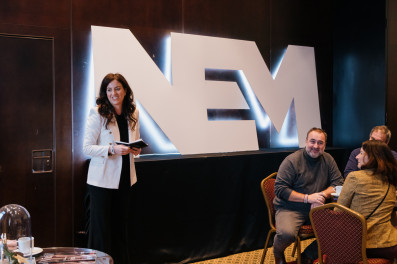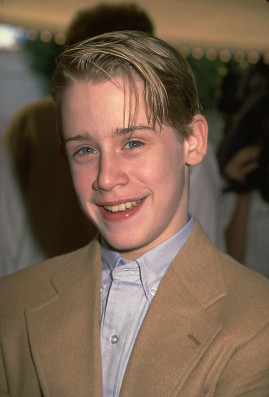Unorthodox - Religion and freedom in Netflix´s latest short series
Show inspired by a best-selling true story brings the story of Satmar Hasidic community in Williamsburg, Brooklyn
Berlin´s in-fous Wannsee glistens under late afternoon´s sun. On the shore, timid and disbelieving, a thin child-like frame of a young girl amongst the beach-goers sticks out, her dark brown eyes fixed on the water. Nobody knows it is her first time on a lakeshore. She has just been told the meeting arranging Holocaust held place just meters away in Hitler´s villa. It is also a place people were shot were they daring enough to swim over to pass the Berlin´s great divide. But now her acquaintances, group of young musicians she had met hours ago tell her it is perfectly safe to swim as far as you like. With great timidity, she begins to undress. Unbuttoning a warm sweater only to reveal her small chest and a turtleneck, unusually warm for this time of the year. Then, reaching under knee-length skirt, she rolls down her thighs, neatly folding everything. At last, she removes a single envelope, handing it over to one of her newly found friends with a pleading look that says This is all I have.[1] [2]
Sunset illuminates her face, her great full lips. As she walks determinately further to the middle of the lake and reaches for what turns out to be a wig, strokes of sunlight fall on her closely shaven head. Taking a deep breath, she dives under, embraced by a wide frame, on her back, her wig floating away. Her name is Esther-Esty Shapiro, played by a young Israeli actress Shira Haas and she has just left her Satmar Hasidic community in Williamsburg, Brooklyn, and this is just the beginning of her change, that we see in the first episode of Unorthodox, produced and directed by Anna Winger and Maria Schrader. Being married just a year before, this meant for Esty leaving her husband Yanky-played by Amit Rahav- and her grandparents who have raised her after her mother´s identical flight for freedom some nineteen years ago.
Inspired by a best-selling true story
Drawing inspiration from a best-selling memoir of Deborah Feldman whom Haas embodies, Unorthodox is a definition of a search for one's place in the world, and the sacrifices we make to know who we come to be. In a search for emancipation, Feldman, also an author of a sequel aptly named The Exodus, being out by the time she reached Berlin with her teenager son, has had a somewhat of a different path of liberation. She had first left Williamsburg community for another one in New York, together with her husband and a newborn son, trading the molecular communities based on similar orthodox rules. It took her several years, some intensive religious marriage counselling and, ultimately, a near-fatal car accident to divorce her husband and cross the ocean. Much like Feldman´s mother, Leah Shapiro came out as a lesbian after the departure.´
Unorthodox perfectly moulds the palpable reality of Hasidic community (Haas joked she overheard the chats about the length of their socks). From discount clothing stores offering little to no modern outfits, homemade cuisine, pristine homes held up daily by the working hands of stay-at-home-wives-the little resting simplicity of indoor scenes covers the little nods at a tradition that seeps to the utmost of being.
What stirs the waters heartily is the psychological pressure, uses the ancestral weight of sanctities in the fundamentalist religious shroud cast throughout one´s life. From cradle till grave the existence is unified in several simple principles- submission of body, mind and soul to God´s forces, modesty and sacrifice. The limitations presented in Unorthodox are deeply rooted in unanimous discouragement of individualism and the binding form of life that is as punctual as a swiss ´watch. What happens inside the mechanism is a different story. In one of the first chapters of her memoirs, Feldman describes an adventurous trip that would otherwise be a mere thrift for a native New-Yorker; going downtown to purchase, in shame and silence, her copy of Torah.
Being filmed between USA and Berlin, Unorthodox can boast far and wide of its admirable and unusual production of this series. The minutiae of visual identity together with a day-to-day depiction fades before the efforts of Winger and Schrader when it came to the cast. Determined to cast only Jewish actors, the set gathered about ten actors with the real-life experience of leaving such closed communities, as revealed by the research of Los Angeles Times, some of them even finding out to be cousins. Eli Rosen who plays Rabbi has indeed proven his paternal role on and off the camera. Being approached very early in the production, Rosen has been of immense help serving as a translator and dialect coach, helping the cast to embody the specific Hungarian Yiddish sound. Moreover so, he helped young Haas, a native Hebrew speaker, with her English lines.
The sounds of Yiddish adds a superb sensibility to the environment depicted, texturing expression with both pride and exclusivity. Freedom is thus found even in the universality of language; during a scene with Esty and Dasia, one of the musicians who have taken her in, they profess that Echt, Stimmt and Genau sound and mean the same, despite thousands of kilometres of distance. Though perhaps idealistically, faithful is the portrayal of Berlin musical milieu Esty finds herself in, dubbing in minor the melting pot of the world. There is a Pole, an Israeli, a Pakistani, an Ethiopian and a single Berlin-born in a taxi to Westsee.
In the other hand, Rosen as Rabbi, during the wedding ceremony between Esty and Yanky, does not invoke God´s name. In the widest sense, the God is referred to many names, beginning with The One, but to mention His name in vain (or, in this case, within a fictitious realm) would be a sacrilege. A great challenge proved the casting of a Yiddish-German speaking Jew, where Jeff Wilbusch had been found. Embodying the estranged causing returning from his run to Berlin, Moishe, Wilbusch is a German-based actor who grew up in an ultra-orthodox community in his native Jerusalem before breaking the bonds with his former community. Haas and Wilbusch stroke a difficult to spot friendship off-screen, as their mutual appearances often follow heated breaking points of the spot.
“My Yanky should always feel like a King. Does that make me a Queen?”
If there had ever been a series that made one look, witness and question the gender in the last decade, the Unorthodox has to be one. Though Esty´s world is full of paths from one mentor to another, from her Zeidy- played by David Mandelbaum- in place of her mentally ill father, to Rabbi, to Yanky in the end, with her lion will create what needs to be created with the utmost will to control and do good, it is the matriarchy that underlines an already present male-female discrepancy. The male part is an active one, creative one, providing one, one needed for the course of life to be right, the inscrutable and unquestionable. The feminine part is passive, receiving, sinful, immodest in most cases, filthy, easy to spoil, always on probation, submissive.
The religious customs are explored through family festivities, weddings and even trips to graves of famous Rabbi´s buried in Berlin. Apart from the holiday´s dinners or Shabbat, the rooms women occupy are always separated from those inhabited by men. It is, naturally, Zeidy who resides over the discipline at the end of the line but it is his wife, Babby, or Granny, played by Dina Doron, who teaches Esty how to bake, knead dough or wash the clothes. It is also Babby and Esty who, secretly, enjoying each others company, do a sinful thing of playing opera when they are all alone.
The female is always judged by the amount of shame she can bring to her family. To Esty, who has been marked as an orphan following the departure of her mother, it is her aunt who will scrutinize her every move, remind her of her insignificance and the need to prove her obedience by doing things right. In effect, doing things right under the wings of such profanity is a question of what is humane and bearable in return of an atmosphere of constant penance for the sins one did not even commit. Ever-reaching religious views put out not only basic bits of knowledge of mathematics but also modern-era utilities. In one of the more humorous scenes of the series, trailing Esty in Berlin, Yanky asks Moshe if he could ask Internet where is his wife.
Not only are her aunt and Zeidy Esty´s only way into the realm of women´s domestic life, but the intimacy of a husband and a wife is also acquainted only weeks before the wedding. Introduced first by Kalla, the teacher, Esty´s sexual education seems like a prolonged Sunday sermon on pure physics. Pain is neither mention nor expected to produce any effect. The narrative strings almost always between the good and bad sides of this well-versed community. Yes, the community is close-knit and there will be a neighbour to always watch out for one´s children. But there is also plenty of mouths to talk about the fact Yanky and Esty did not do it a month into their marriage, a mother-in-law is coming unexpectedly in the visit to give some first-rate input to the new bride.
There is a subtle nudge to the trolleys of her friends, there is some talk over dinner about how Yanky and Esty are still not expecting, nevermind the fact both are well-beyond ignorant of their anatomy. Not only is the intercourse a planned activity of each Friday, but pregnancy is also expected and days until the bride´s stomach is visible to others are numbered almost from the utterance of Mazel Tov under the chuppah. Thus on the verge of tears and in one of the most emotional scenes of the series, we see Esty covering her eyes in the dark of their bedroom, visibly in pain but determined to see it through. Yanky is, in the end, exhilarated, Esty left in the dark with tears and something has irrevocably broken in her.
“God demanded too much of me”, Esty will say in one scene. With the Hollywood famed movie Disobedience- starring Rachel McAdams and Rachel Weisz or another of Netflix´s own Shitsel, where Haas delivers another spectacular performance, Unorthodox is still the one example of total bareness and truth, as heartbreaking as it is reverent, just as Esty´s mikvah purification through prayer and bath, as she flows to a new life.














